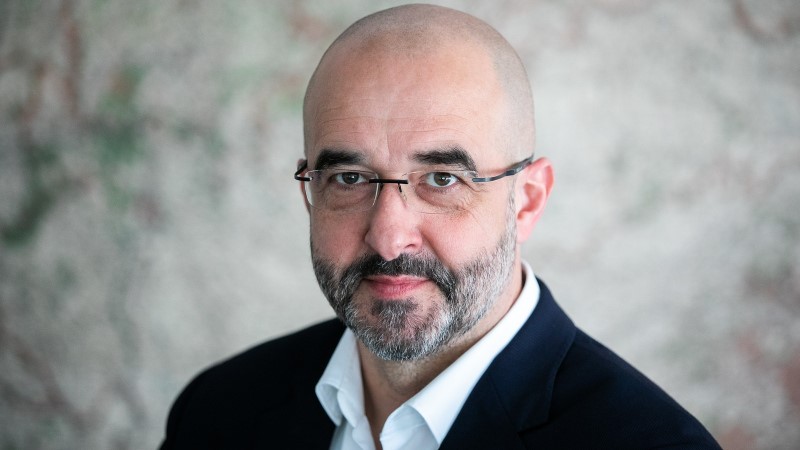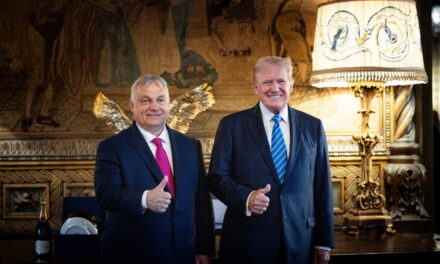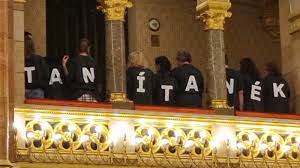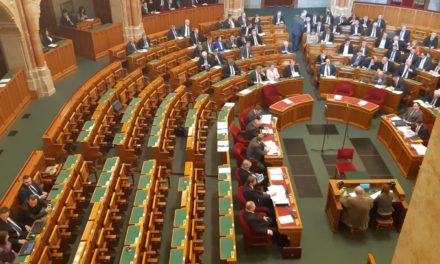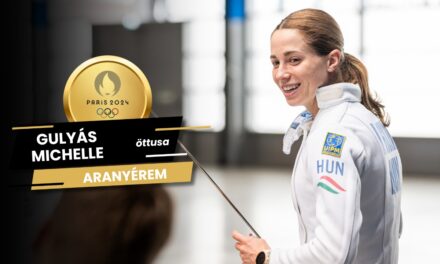Hungary is not sending weapons to Ukraine, but it is one of the first to advocate for peace - stated Zoltán Kovács, the state secretary responsible for international communications and relations, who was also asked about the victory of Fidesz in the parliamentary elections in an interview with the Italian television station RAI on Sunday.
Lucia Annunziata, the host of RAI's third channel, which is known to be close to the left, asked Zoltán Kovács in the program In mezz'ora (Half an hour) dealing with domestic politics and European issues.
The first issue concerned the human rights that were seriously violated in the war in Ukraine. The state secretary emphasized that war never represents a solution, but the conflict situation is not only about human rights, but about international relations.
"Hungary is on the side of peace, like all the other countries bordering Ukraine," he declared. In response to a question, he said that the wording according to which Hungary, as a NATO member state, follows "dissident" behavior is not entirely correct. He added,
Hungary stands one hundred percent in favor of the decisions of NATO and the European Union, but does not send weapons with its national interests in mind. He noted that the NATO defense alliance, whose tasks do not include the provision of arms shipments.
Zoltán Kovács said that the Hungarian government is very worried about the war and considers the safety of the Hungarian minority in Ukraine to be a top priority. He emphasized that Hungary is one of the first to advocate for peace and the discovery of the truth about everything that is happening in some regions of Ukraine based on the recordings.
When asked whether Viktor Orbán could act as a mediator between Kiev and Moscow, Zoltán Kovács replied that peace does not depend on a single politician, and that the Hungarian Prime Minister will do his best with the other political leaders to achieve a ceasefire.
When asked about the election victory of Fidesz, Zoltán Kovács believed that the ruling coalition's position on the war "definitely counted".
As regards European rule of law procedures, Zoltán Kovács emphasized that Hungary has been under political attack and witch-hunt since the 2010 election victory of Fidesz. He explained that the left-wing perception that Europe can only move in one direction and that the left dictates what the European spirit means is unacceptable to the center-right forces. "In addition, we don't think it's the right direction," said Zoltán Kovács.
He stressed that the Hungarian government fully respects the European treaties, but at the same time believes that a distinction must be made between the competences of the European institutions and the member states.
"Europe is strong when its member states are strong," he said.
Even at the peak of the migration wave, which was one of the first to hit Italy, "Europe should have reacted, Hungary did," he declared.
As for the relations between Budapest and Moscow, according to Zoltán Kovács, many people have already tried to interpret them in such a way that they consider Hungarian-Russian relations to be "extraordinary", but at the same time, the relations between Germany, France and Italy with Moscow are much stronger in terms of volume, compared to which Hungarian-Russian relations do not have nothing extraordinary, he explained. He noted that the Hungarian government is faced with the political legacy of the previous thirty years, which "created a severe energy dependency on Russia".
Source: Magyar Hírlap
Featured image: Mandiner/Márton Ficsor

